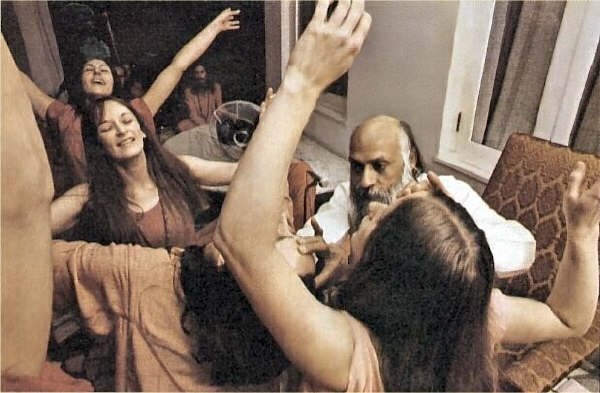There are three kinds of freedom. One is 'freedom from'; that is a negative freedom: freedom from the father, freedom from the mother, freedom from the church, freedom from the society. That is a negative kind of freedom — freedom from — good in the beginning, but that can't be the goal. Once you are free from your parents, what are you going to do? Once you are free from your society then you will be at loss. You will lose all meaning and significance because your whole life had meaning in saying no. Now whom to say no to??
This is 'freedom from'. This is not much of a freedom, but better than nothing.The second kind of freedom is 'freedom for'; that is positive freedom. Your interest is not in denying something, rather you want to create something. For example, you want to be a poet, and just because you want to be a poet you have to say no to your parents. But your basic orientation is that you want to be a poet and your parents would like you to be a plumber. "Better be a plumber! That is far more paying, far more economical, far more respectable too. Poet?!
People will think you are crazy! And how are you going to live? And how are you going to support your wife and your children? Poetry can't pay!"
But if you are for poetry, ready to risk all, this is a higher freedom, better than the first. It is positive freedom — 'freedom for'. Even if you have to live a life of poverty you will be happy, you will be cheerful. Even if you have to chop wood to remain a poet you will be utterly blissful, fulfilled, because you are doing what you wanted to do, you are doing your own thing. This is positive freedom.
And then there is a third freedom, the highest; in the East we have called it MOKSHA — the ultimate freedom, which goes beyond both the negative and the positive. First learn saying no, then learn saying yes, and then just forget both, just be. The third freedom is not freedom against something, not for something, but just freedom. One is simply free — no question of going against, no question of going for. 'Freedom from' is political, hence all political revolutions fail — when they succeed. If they don't succeed they can go on hoping, but the moment they succeed they fail, because then they don't know what to do.
That happened in the French Revolution, that happened in the Russian Revolution…that happens to every revolution. A political revolution is 'freedom from'. Once the Czar is gone, then you are at a loss: What to do now? Your whole life was devoted to fighting the Czar; you know only one thing, how to fight the Czar. Once the Czar is gone you are at a loss; your whole skill is useless. You will find yourself very empty. 'Freedom for' is artistic, creative, scientific. And 'just freedom' is religious.
Before I can teach you MOKSHA — just freedom, neither for nor against, NETI NETI, neither this nor that, but pure freedom, just the fragrance of freedom — before I can teach it to you, you will have to know the positive one: 'freedom for'.
Hence the commune. It is a creative commune; we are going to be creative in a thousand and one ways. In every possible way we are going to be creative, so that you can learn how to say yes to life.When the yes has destroyed your no, both can be thrown away. That is the ultimate in joy, in freedom, in realization.
OSHO


